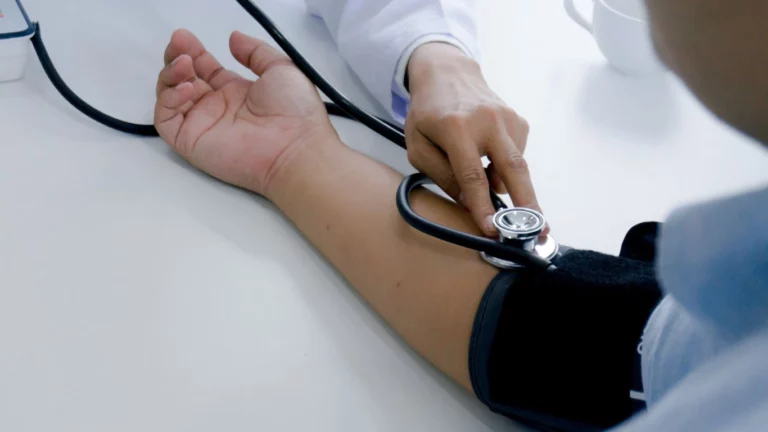Can Beans Worsen GERD Symptoms? 🤔 Let’s Talk About It!
Introduction
Got GERD? If you’re wondering whether beans are making your symptoms worse, you’re not alone. Let’s talk about it! In this post, we’ll break down how beans might affect GERD symptoms, why they’re sometimes tricky, and what you can do about it. We’ll look at expert opinions, practical tips, and even success stories from people who’ve figured out how to enjoy beans without the heartburn.
What’s the Deal with GERD?
Before we get into beans, let’s take a step back and talk about GERD. If you’ve been diagnosed with GERD, you probably already know it stands for gastroesophageal reflux disease. It’s when stomach acid leaks into the esophagus, causing heartburn, discomfort, and even chest pain. It’s super common, but it doesn’t make it any less annoying.
Can Beans Make GERD Symptoms Worse? 🤔
Now let’s talk beans. These little guys are packed with protein, fiber, and nutrients, but they might be more trouble than they’re worth when you’ve got GERD. Here’s why:
1. Beans and Gas – It’s a Thing
Beans are known for causing gas—and that’s because they’re rich in fiber and contain oligosaccharides, complex sugars that can be tough on digestion. This can lead to bloating and increased pressure in your stomach, making GERD worse. If you’ve got GERD, that extra pressure can push acid into your esophagus, leading to more heartburn and discomfort.
2. Fiber Overload
Fiber is usually great, but for GERD, too much fiber can irritate your stomach. Beans are loaded with fiber, which can make things a little uncomfortable. If you’ve got GERD, too much fiber can leave you feeling bloated and even worsen your symptoms.
3. Acidic Beans?
Not all beans are created equal. Some are more acidic than others, which can trigger reflux. Beans like kidney beans and black beans might cause more reflux than lentils or chickpeas. Pay attention to how your body reacts to different beans and adjust accordingly.
The Expert Says…
I’m no doctor, but I’ve heard from a few experts that beans aren’t a strict no-no for GERD sufferers. They can be part of your diet if you’re careful about how you prepare and eat them.
- Here’s what some of them have to say: Dr. Emily Rivera, a gastroenterologist, says, “Beans can be tough for GERD patients, but when prepared correctly and eaten in moderation, they can be part of a healthy diet.”
- Sarah Thompson, a dietitian, adds, “Soaking beans, rinsing them, and starting with small portions is key for making them more digestible for GERD sufferers.”
Troubleshooting Common Bean Issues with GERD
If you’re a bean lover but find they mess with your GERD, don’t panic. There are a few tricks you can use to make them more GERD-friendly:
1. Soak and Rinse Your Beans
Soaking beans overnight and rinsing them helps remove the gassy sugars that can trigger bloating and discomfort. It’s a simple fix that can make a big difference.
2. Start Small
Don’t go all in with a giant bean burrito on your first try. Start small and gradually increase your servings to see how your body handles them.
3. Cook Beans Thoroughly
Undercooked beans can be tough on your stomach. The longer you cook them, the easier they’ll be to digest.
4. Pair Beans with GERD-Friendly Foods
If you’re making a bean dish, pair it with lean proteins like chicken or turkey, and mild veggies like zucchini or carrots. This helps balance out your meal and keeps things easy on your digestive system.
Case Studies / Success Stories
Let’s talk about a couple of real-life stories of people who’ve made beans work with GERD:
Sarah’s Story: From No Beans to Bean Lover
Sarah, 32, had to give up beans for a while because they made her GERD symptoms unbearable. But with some tips from a dietitian—soaking, rinsing, and eating small portions—Sarah was able to reintroduce beans into her diet without issues. It took a bit of trial and error, but now she enjoys beans in moderation again.
John’s Story: Finding Bean Alternatives
John, 45, couldn’t handle beans at all. He switched to lentils and chickpeas, which were much easier on his stomach. Now he enjoys his meals without the reflux.
Key Takeaways
So, what have we learned? Beans can worsen GERD symptoms for some people, but they’re not necessarily off the table. Here’s what you need to remember:
- Beans aren’t automatically bad for GERD, but they need to be prepared carefully and eaten in moderation.
- Some beans (like kidney and black beans) may be more acidic and trigger reflux.
- Soak, rinse, and start small to avoid gas and bloating.
FAQs
1. Can I eat beans if I have GERD?
Yes, but take it slow and pay attention to how your body reacts. Some beans are better tolerated than others.
2. Which beans should I avoid with GERD?
Beans like kidney beans and black beans may trigger GERD symptoms more often. Lentils and chickpeas are usually gentler.
3. How can I reduce gas from beans without worsening GERD?
Soak and rinse them, cook them well, and start with small portions to avoid excessive gas.
References
- Mayo Clinic – GERD: Causes and Risk Factors
- WebMD – Foods That Trigger GERD: What You Need to Know
- NIDDK – GERD Overview
Disclaimer
This is just general information and not medical advice. Always consult a healthcare professional before making any big changes to your diet.
Call to Action
Got GERD? Don’t let beans be the enemy! If you’re unsure about how they affect you, try experimenting with portion sizes and preparations. And hey, if you want more tips or personalized advice, reach out to a pro who can guide you through it.

Camellia Wulansari is a dedicated Medical Assistant at a local clinic and a passionate health writer at Healthusias.com. With years of hands-on experience in patient care and a deep interest in preventive medicine, she bridges the gap between clinical knowledge and accessible health information. Camellia specializes in writing about digestive health, chronic conditions like GERD and hypertension, respiratory issues, and autoimmune diseases, aiming to empower readers with practical, easy-to-understand insights. When she’s not assisting patients or writing, you’ll find her enjoying quiet mornings with coffee and a medical journal in hand—or jamming to her favorite metal band, Lamb of God.










